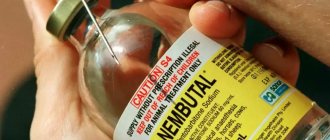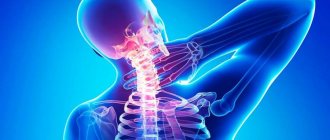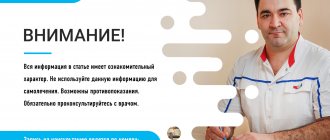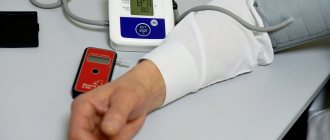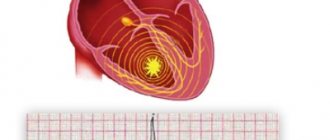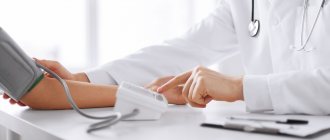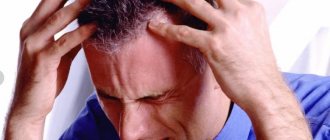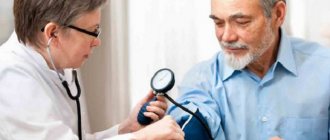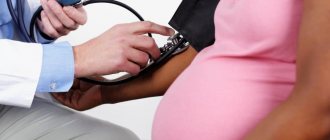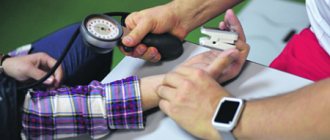120/80 is already a lot!
Alexandra Chizhova, AiF Health: Arterial hypertension is one of the main risk factors for heart attack and stroke. But if previously it was believed that there was no need to reduce blood pressure to 140/90, now cardiologists insist that this is hypertension. So what pressure is considered normal and when to take medications?
Alexander Myasnikov : Indeed, according to today’s views, normal blood pressure (BP) should not be higher than 119/78. Doctors already regard 120/80 as prehypertension, thereby emphasizing the fact that the risks of cardiovascular diseases begin to increase, at least slightly, at blood pressure of 120/80 – 129/80.
Pressure 130/80–130/90 is already hypertension, requiring intervention. However, if a person, in addition to high blood pressure, has no other risk factors for a heart attack, one can limit oneself to measures such as aerobic physical activity, weight loss, and diet. But if the patient is a smoker, if he is overweight, has high cholesterol and blood sugar levels, then he will have to take medications.
Every six months - ECG and once a year ultrasound. Examination schedule for hypertensive patients Read more
– Some older people consider high blood pressure normal for their age. And there is even an opinion that high blood pressure in the elderly improves blood supply to the brain. Do blood pressure targets really vary by age?
– This is a common misconception. In the elderly, even moderately elevated blood pressure (especially systolic - “upper”) is the most significant risk factor for heart attacks, strokes and, most importantly, senile dementia (dementia). Another thing is that the target values for reducing blood pressure in adulthood may be slightly higher than in youth - up to 130/80. But at the same time, blood pressure cannot be reduced sharply, otherwise the blood supply to vital organs may drop to a dangerous level.
– There is also a common point of view that medications against hypertension should be taken only in case of high blood pressure. And if the tonometer readings are normal, you shouldn’t stuff yourself with chemicals once again. How dangerous is this approach?
- Definitely dangerous! Arterial hypertension cannot be cured, the disease can only be controlled. These are like crutches for someone without legs: they cannot be used on Saturdays and Sundays and not used on weekdays. They are always needed! Why is the patient taking medication? In order for the blood pressure to be normal, this is the goal of treatment. And it is absurd, as soon as the goal is achieved, to cross out everything and stop taking medications. This leads to hypertensive crises, heart attacks and strokes.
Article on the topic
Surprises of cardiology. Fat does not harm blood vessels, but omega-3 acids are useless
What are the dangers of blood pressure surges?
Sudden changes in blood pressure for people over 60 years of age pose a greater danger than consistently high or low levels. They increase the load on the heart several times, accelerating its wear and tear, and provoke a hypertensive crisis, which can cause various complications, including myocardial infarction. Also, surges in blood pressure can cause cerebrovascular disorders, coronary heart disease, and stroke.
How to identify pathology?
A tonometer will help accurately diagnose changes. But they can also be identified by deterioration in well-being.
Blood pressure surges are accompanied by:
- Headache and dizziness;
- Alternating redness and paleness of the skin;
- Noise in the ears;
- The appearance of black dots before the eyes;
- Nausea and vomiting;
- Numbness of fingers;
- Cold extremities;
- Muscle tremors of the whole body;
- Tremor of the limbs;
- Slowing or increasing heart rate;
- Feeling of lack of air (shortness of breath);
- Aching or girdling pain in the chest area;
- Increased sweating;
- Severe weakness, fatigue and weakness (sometimes a person cannot even walk);
- Fainting and convulsions.
If such symptoms appear, it is necessary to measure blood pressure in both arms and monitor the readings for 2 hours, every 20-30 minutes.
How to treat the disease?
If an elderly person’s blood pressure fluctuates, then first of all he needs to see a doctor. The specialist will conduct diagnostics to determine the cause of the pathology, individually select medications, adjust the dosage, and take into account the presence of chronic diseases and contraindications.
It is recommended to keep a diary to note after what actions the blood pressure decreased or increased, which will help the doctor prescribe the optimal treatment.
Self-medication is only possible as an emergency, after which you should call a doctor. Otherwise, it can lead to serious complications and death.
First aid
What to do if the tonometer shows a strong deviation from the norm?
If blood pressure is high, you need to lie down in a comfortable position and relax. It is recommended to place a heating pad on your feet. If a person experiences chest discomfort, nitroglycerin should be taken.
If your blood pressure is low, you need to drink a cup of coffee, put a little salt on your tongue, eat a spoonful of sugar, or take citramone or a few glucose tablets.
If the pressure has returned to normal and the symptoms have not disappeared, then no additional measures need to be taken. The condition will soon be restored.
You need to lose weight gradually
– Does the treatment of hypertension always mean taking medications? Is it possible to normalize blood pressure in other ways?
– If the blood pressure is moderately elevated, before prescribing medications, they try to normalize it for three months by eliminating salt from the diet, losing weight, and exercising. And only if this does not help, we prescribe medications. If the patient comes in when his blood pressure level is constantly above 150/90, medications are prescribed to him along with diet and exercise.
– What products should definitely be on the menu of people suffering from cardiovascular diseases, and what should they definitely avoid? Is sugar really worse for the heart than fat?
– There are several nutritional rules for heart patients. The first is limiting the amount of calories to 1800 kcal per day. The second is “not to eat anything white” (that is, exclude salt, sugar, white bread, white rice, pasta). The third rule concerns fats - they should be either vegetable, or from seafood and nuts. Polyunsaturated fatty acids (from vegetable oil, sea fish, nuts) reduce “bad” cholesterol and increase “good” cholesterol. But sugar, on the contrary, reduces “good” cholesterol and increases “bad” cholesterol. But most importantly, sweets reduce “sensitivity” to insulin, and this is a direct path to diabetes and oncology.
– Another risk factor for cardiovascular disease is excess weight. How can a person lose weight if he already has heart problems? Is it worth playing sports or is physical activity contraindicated in this case?
– You need to lose weight correctly. That is, gradually. Set a goal of losing approximately 5% of your body weight every three months. Even with such a slow and seemingly insignificant weight loss, the risks of diabetes and heart attacks are sharply reduced. In addition, with gradual weight loss, there is no surge in hormonal activity, which can cause a slowdown in energy metabolism and an increase in appetite. And remember: the key to successful weight loss is not only limiting the number of calories, but also feasible physical activity; one does not work without the other!
Article on the topic
The disease of the dissatisfied. What symptoms indicate the onset of heart problems?
Preventive measures
To prevent blood pressure surges, you must:
- Regularly monitor blood pressure using a home blood pressure monitor;
- Avoid coffee and strong tea;
- Minimize fat and salt content in food;
- Eliminate smoked meats, sausages, and canned food from the diet;
- Increase consumption of sea fish, vegetables and fruits;
- Do not give up physical activity, but it should be moderate (exercise, walking) so as not to strain the body;
- Get enough sleep at night and rest during the day;
- Maintain body weight at the same level;
- Do not take medications that quickly lower blood pressure, which can cause collapse due to rapid drainage of blood from the brain and lead to death (this recommendation is especially relevant for people over 90 years of age).
Love yourself!
– Stress can also lead to heart attacks and strokes. But, unfortunately, it is impossible to completely avoid unrest. Recommend some ways to relax.
– Just comprehend the fact that yesterday has already passed, and tomorrow has not yet come. And with our worries we will not change anything, but will only harm our health. Loving people also means loving yourself. So do everything possible for your health, but come what may!
– Many people are used to relieving stress with alcohol. But at the same time, many doctors argue that there is no safe level of alcohol. Is it so?
- No. All over the world there are alcohol standards that are considered beneficial for the cardiovascular system. This is approximately 20 grams of pure alcohol per day. That is, a glass of strong drink, or a glass of wine, or a mug of beer. But the line is very thin - even a slight excess of the specified amount begins to act harmfully. The famous rule of Paracelsus: “Medicine and poison differ only in dose!”
Dynasty and career
Alexander Myasnikov was born on September 15, 1953 in Leningrad into a family of doctors, according to the doctor’s official website.
He completed residency and postgraduate studies at the Institute of Clinical Cardiology named after A.L. Myasnikov, worked in Mozambique as a doctor for a group of geologists. Since 1996, he worked in the USA, completing his residency at the New York State University Medical Center with a degree in general practitioner.
In 2000, the American Board of Medicine awarded Myasnikov the title of doctor of the highest category.
Useless drugs
Previously, Dr. Alexander Myasnikov noted that approximately eight out of 10 Russian doctors regularly prescribe drugs from the “dummy” list to patients.
Many doctors prescribe “dummy drugs” to patients that cannot help the patient, said the chief physician of Moscow Hospital No. 71, Alexander Myasnikov, in the program “About the Most Important Thing” on the Rossiya 1 channel.
According to Myasnikov, useless drugs are nootropics, enzymes, immunomodulators, vascular-strengthening drugs, vitamins and dietary supplements, hepatoprotectors, probiotics and prebiotics, chondroprotectors, herbal mixtures and tinctures, and homeopathic drugs.
Confidant
In 2021, Myasnikov became a confidant of Russian presidential candidate Vladimir Putin. In Andrei Malakhov’s “Live Broadcast” program, he said that being next to Putin during the playing of the anthem at the stadium was unforgettable.
“When you stand next to the president and in such a situation, you have the feeling that you can do anything, you are not afraid of anything,” he said.
The doctor explained that he is Putin’s confidant “not out of duty, but out of conviction.”
Aibolit millionaire
Judging by income declarations published on the website of the Moscow Department of Health, Myasnikov earned over 14 million rubles in 2021.
The head physician of hospital No. 71 owns a land plot, a residential building, an apartment, non-residential premises, as well as two cars and two all-terrain vehicles.
“Everything goes towards travel, the helicopter and things like that. The apartment is old, 67 meters in a house built in 1946. The dacha is 100 km from Moscow, the plot is large, but many would regard the house as poor,” he wrote on his Instagram.
Vladimir Putin.
kremlin.ru
A television
While working in the Kremlin clinic, Myasnikov’s television career began - he became the host of the program “Did you call the doctor?” on NTV and began conducting a medical column in Vladimir Solovyov’s program on Vesti FM radio, writes Rosbalt.
And in 2013, Myasnikov became the host of the “About the Most Important” program on the Russia 1 TV channel. This is a response to a similar program with Elena Malysheva on Channel One.
